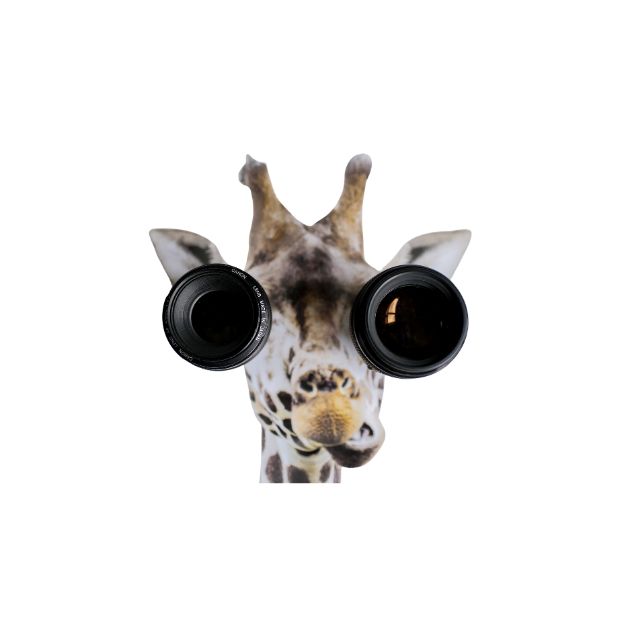Interview with Dr Annemarie Lombard (Part 1)
Posted: 20 May, 2016
By: Annabella Sequeira

Sensory Intelligence® Consulting was founded by Dr Annemarie Lombard in 2003. She has a PhD in Occupational Therapy and practised with children with learning difficulties for 15 years. She works with a group of esteemed occupational therapists and facilitators to deliver Sensory Intelligence® as a training and development tool in South Africa and abroad.
We had a chat with Annemarie about the Sensory Intelligence® journey and how it came into existence. The answers that ensued, speak of her passion, energy and vision for empowering parents, teachers, and corporates to make a difference to the lives and relationships of the general and the global market.
We hope you enjoy reading part one of two in getting to know the brains behind the business.
What makes Sensory Intelligence® different to EQ (Emotional Intelligence) and IQ (Intelligence Quotient), and why is it so important, especially in the context of the South African education and business landscape?
We are all stuck disconnected and disengaged. This is not just a South African issue but a global one. Life has become super-fast and technology is overtaking humanity. There is too much pressure, too many distractions and families find it really hard to get time to just be and connect!
The intelligences have a hierarchical structure in the brain – or rather the ones that I refer to:
• IQ is in the higher, top/executive level of the brain. It is all about our thinking, scheming, strategising and performing. IQ is always measured against performance and output and never good enough. Rightfully this part of the brain gets accessed for thinking, reasoning, learning and performing.
• The middle part of the brain is the limbic area and the seat to emotional intelligence (EQ). Our collective social interactions and how our emotions that contribute to our daily living, mostly works in this part of the brain. EQ is also measured and the goal is always to improve your EQ score because it will help you to manage your emotions and relationships better.
• Sensory Intelligence® refers to the lower, primitive brain, the brainstem and reptilian brain. This part of the brain is involvement in gut, habits, preferences, comfort levels and acts intuitively.
EQ and Sensory Intelligence® is primarily based around the lower part of the brain and scientists seem to agree that these lower parts account for 80% of brain activity and energy while only 20% gets allocated to the top IQ brain. Another important neuroscience fact is that information enters the brain at the bottom only. There is no entry to directly get to the IQ/executive brain.
So, information enters the brain (and information is 90% sensory – we see, hear, touch, smell, taste, move) and these messages stream into the brain at full force through the primitive, sensory brain FIRST! This part of the brain is thus the first filter and regulation portal. The brain decides here already what needs to go where, when and how fast. So by controlling sensory input we can control the way the brain processes and behaves to an extent already. Then information travels to the limbic/middle brain for EQ and lastly it travels up to the IQ executive brain. Sensory and emotion (primitive and midbrain) have many reciprocal connections and influence each other extensively. Therefore the saying “sensation and emotion are forever married”.
As an example, remember the last time you said something or did something to realise a split second later that you shouldn’t have? That is the influence and power of your primitive brain – it responds without thinking (it does not have thinking capacity – thinking lies in the executive/cortical brain). But it plays an enormous role in our daily functions of attention, emotion and behaviour. These three are the core functions we address in Sensory Intelligence® – attention, emotion and behaviour and how our sensory thresholds and assess impacts on these three major functions for learning, working and living.
April marks Autism Awareness month. Why is Sensory Intelligence® such an important concept to grasp for parents of children on the spectrum?
Ask any autism spectrum adult or adolescent and they will confirm that the sensory elements of autism are by far their biggest hurdle. Autistic people are typically sensory sensitive with either low or fluctuating thresholds. In other words, they are hugely affected (and mostly negatively) by their environments. Everything is just too loud, too bright, too tight or too fast for them. They experience sensory overload and they really battle to cope with this. Their withdrawal patterns and poor social skills are not necessarily caused by sensory overload, but augmented by their sensory issues.
They need consistency, routine and structure. Unpredictable and sensory overloaded environments (like shops and shopping malls) are very difficult for them to cope with. And remember they will typically throw tantrums, get aggressive and/or withdraw in such environments. Parents need to be aware of this – without overprotecting them and shielding them away from such environments. Exposure (but gently, calculated and when they feel good) is great as it teaches them to adapt to and manage these environments. Senses are thus a vital key to autism – it is the window to their souls and interactions. Understand it, use it wisely and learn to look at people and environments from a sensory point of view.
The 3 key factors majorly affected by autism are: 1) social skills 2) repetitive behaviours; and 3) language. Both 1 and 2 are majorly impacted by sensory issues and the way they process info from the environment.
What did you dream of becoming when you were a little girl?
A dentist! Thank heavens that did not come true. I would have been a very bad one – too much detail and precision and too repetitive. I need adventure and variation and definitely people.
What does your ultimate dream breakaway entail and how does it fit in with indulging your own sensory matrix?
Travelling to exotic places – starting off with Italy (I’d love to do a culinary trip there). I turn 50 next year and might be aiming for that as a present. And of course travelling to different places is so perfectly aligned with my sensory matrix. I have high thresholds and I am a sensory seeker – I need variation, lots of stimuli, change, people, etc.
I can drag hubby with (he of course has low thresholds) but he will need to plan and prepare for it way in advance. His choice would have been somewhere quiet, like the beach or an island with not much going on. I guess this time we can go with my choice since it is my big 50!



